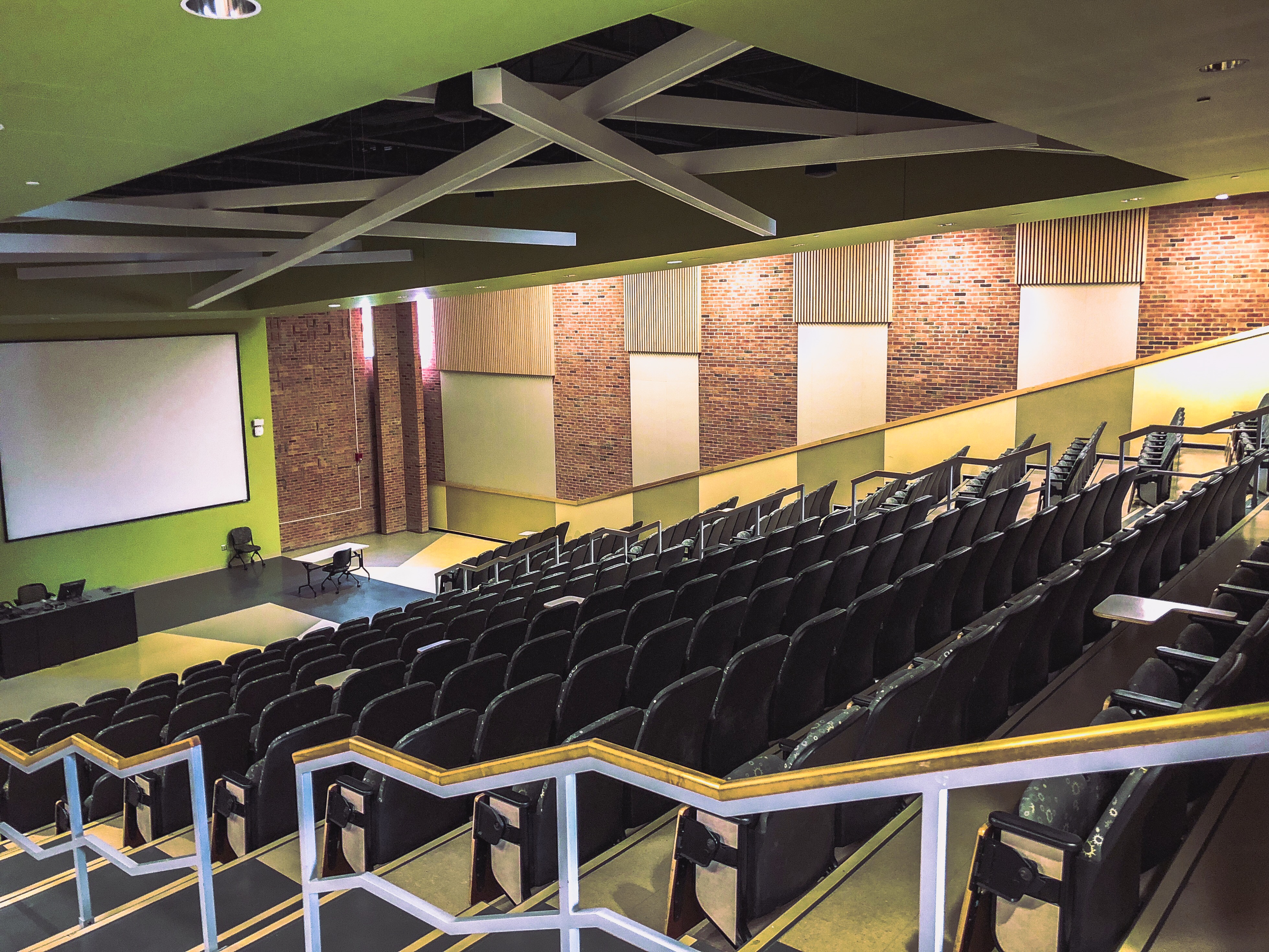
Classroom, Wright State University | Photo by Soham Parikh | The Wright State Guardian
Wright State University’s (WSU) Modern Language Department is moving their language classes, which include French, Spanish, German and Chinese, online for the Fall 2020 semester.
The decision was announced by Chair of the Department of Modern Languages Dr. Ksenia Bonch Reeves in an email to students on Tuesday, July 14.
“As you know, our classes are built around speaking and interacting,” the email reads. “To do so safely, all participants must wear masks. One of the considerations is that remote teaching can leverage technology to provide an experience that’s very close to face-to-face interaction without the instructor wearing a mask.”
This decision was made with input from the entire department, with Bonch making the final call about whether classes would be in-person or online.
The effect of masks on learning other languages
This decision revolved around the need for professors and students to wear masks during in-person classes.
French professor Dr. Kirsten Halling explained that students and professors often read lips when conversing in foreign languages.
“When you’re learning a language, you really do look at the way the mouth forms, and so without that cue, it makes it much harder to learn and to understand what the professor is saying,” said Halling.
Face masks would hurt the experience of those taking sign language courses as well. According to American Sign Language (ASL) professor Jodi Pierstorff of the Lake Campus, she chose to teach remote classes because ASL utilizes the entire face and she would have to be able to see her student’s facial expressions.
Switching from face-to-face to online classes
The Spring 2020 semester saw the professors of the language department use a variety of tools to teach their classes. Pierstorff and Halling both used asynchronous courses to teach their respective subjects, with the latter utilizing PowerPoints in place of in-person lectures for her two online courses. Halling taught a third class, a course in Beginning French, through the program Collaborate Ultra.
“We wanted to do something that honored the students and engaged them, and it was really difficult to reinvent all of the material for those few weeks,” Halling said. “We all snapped into high gear and researched everything that we could research and tried to deliver the material the best we could.”
Student problems
The online courses caused problems for some students who could not get a good internet connection in their homes. A few of these students used phone calls to converse with Halling since they were unable to log into their online course, while some received an incomplete.
Taking the department’s Beginning German course last spring, history major Raven Crook had difficulty adjusting to the sudden change.
“While our professor was teaching the same things and our class size was rather small, it felt like there was a larger divide,” Crook said.
Because of this divide, she is avoiding taking another German class until she can enroll in a face-to-face course.
Due to the problems that students like Crook were having during the spring semester, the department has been working over the summer to make it easier to take language classes online.
“We all decided that if we’re going to go with the online format, we’re going to enhance it, use all of the bells and whistles, and make sure that we still have interaction and the students are comfortable in that format,” Halling said.
Students who don’t have a secure internet connection at home have the option of borrowing a laptop from CATS to complete their language classes online. This will allow students to connect with their professors and classmates effectively through screens.
Staying optimistic about the future
Halling is optimistic about how the fall semester will proceed and is striving to highlight the importance of communication in her courses.
“We’re trying as much as we can to get the students listening, speaking, interacting with each other and interacting with us,” she said. “I’m trying to not let that fall by the wayside.”
Regarding whether the department would resume in-person courses in the spring, Bonch hopes to offer the safest option for students taking language courses at WSU.
“We are encouraged to see that the curve is beginning to flatten again,” she explained. “We want nothing more than to return to our usual routines, but the most important consideration is the health and safety of our students and families, our faculty and staff, and the broader community.”
